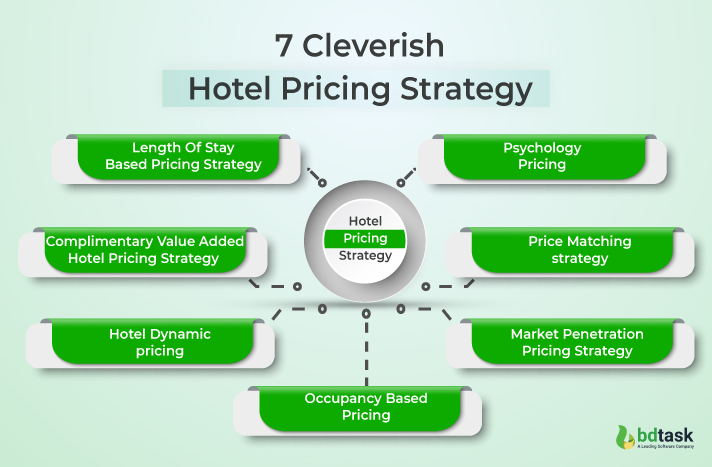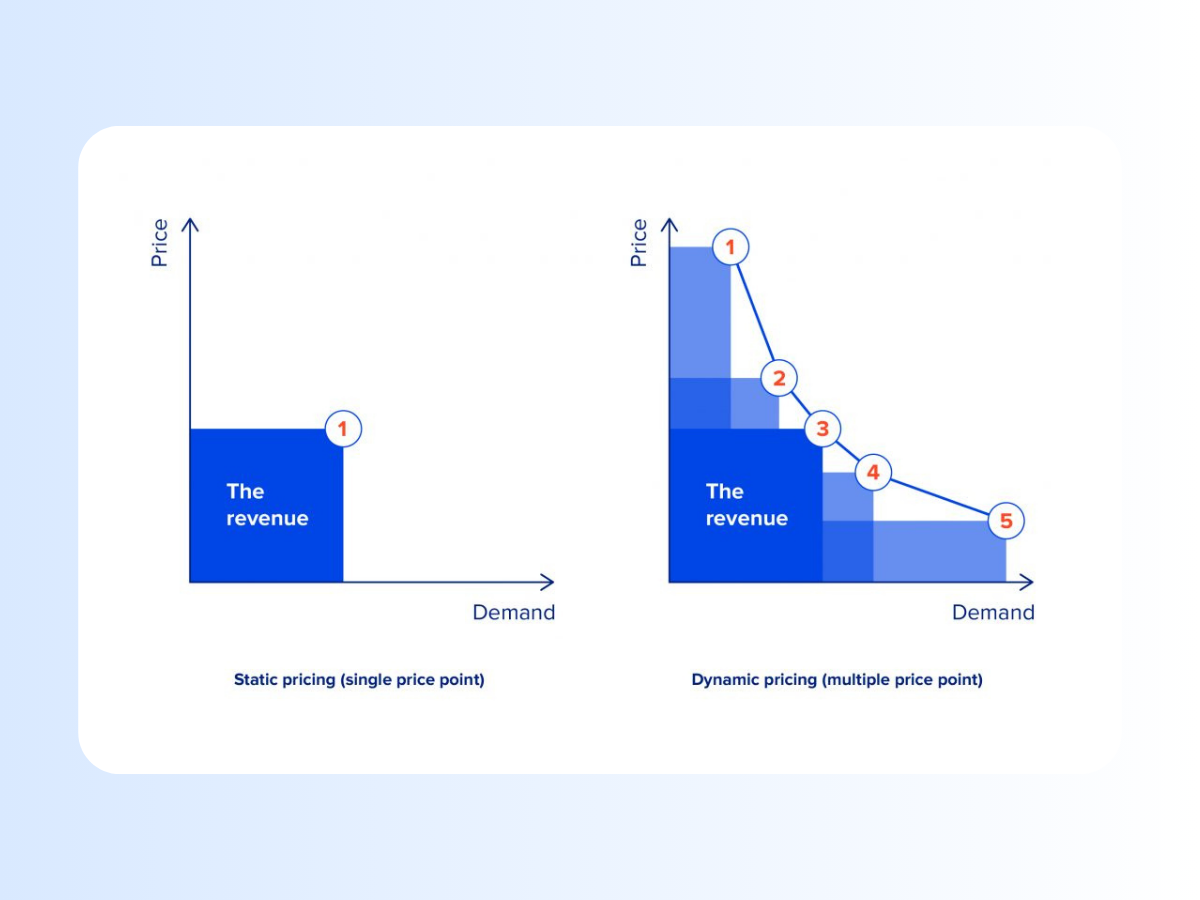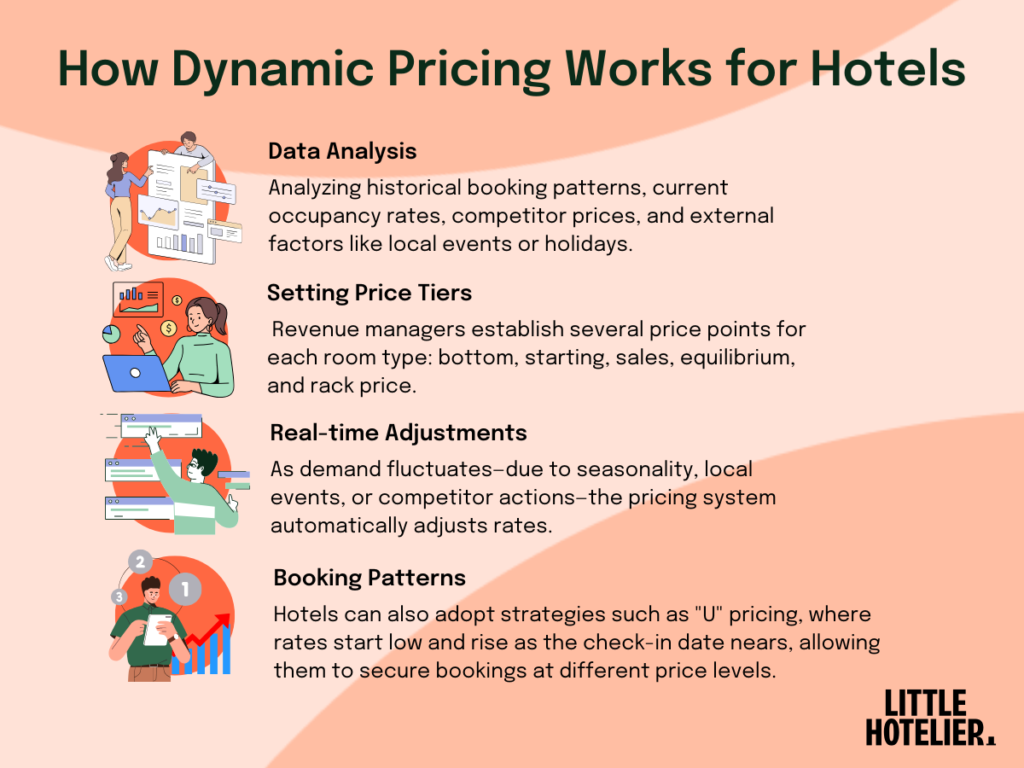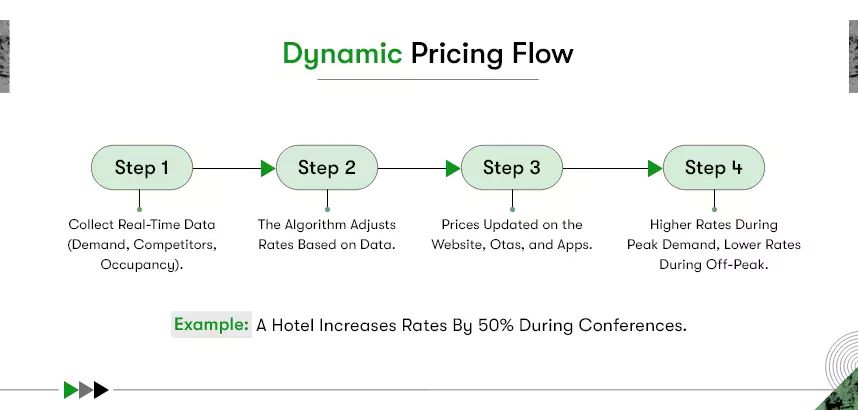Key Pricing Strategies to Maximize Bookings and Profitability
Effective pricing strategies are essential for hospitality businesses to attract guests, optimize occupancy, and maximize revenue. Below are the most impactful approaches, each with a clear rationale and practical application.
Dynamic and Demand-Based Pricing
- Dynamic Pricing: Adjust room rates in real time based on factors such as demand, competitor pricing, and market conditions. This approach allows hotels to capitalize on high-demand periods and stimulate bookings during slower times.
- Demand-Based Pricing: Set prices according to fluctuations in travel demand—higher during peak seasons or events, lower during off-peak periods. This strategy requires analyzing historical data and forecasting future trends to make informed adjustments.
- Occupancy-Based Pricing: Focus on maximizing occupancy by lowering rates when bookings are slow and increasing them as rooms fill up, ensuring optimal revenue per available room (RevPAR).
Value-Based and Premium Strategies
- Value-Based Pricing: Price rooms based on the perceived value to the guest, rather than just cost. This is especially effective for luxury or unique properties, where guests are willing to pay more for exclusive experiences.
- Penetration Pricing: Start with lower rates than competitors to quickly gain market share, then gradually increase prices as occupancy rises.
- Rate Parity Pricing: Maintain consistent rates across all booking channels (website, OTAs, etc.) to build trust with guests and avoid penalties from online travel agencies.
Bundling and Package Deals
- Package Pricing: Offer bundled deals that combine accommodations with extras like tours, meals, or spa services. This increases perceived value and can attract groups or families looking for convenience and savings.
- Event-Based Pricing: Adjust rates and create special packages around local events, conferences, or holidays to capture increased demand.
Loyalty and Incentive Strategies
- Loyalty-Based Pricing: Provide exclusive rates or perks to members of your loyalty program to encourage repeat bookings and direct reservations.
- Cancellation Policy Pricing: Offer lower rates for non-refundable bookings, reducing the risk of last-minute cancellations and securing revenue in advance.
Upselling and Ancillary Revenue
- Upselling: Encourage guests to upgrade their room or add services (e.g., late checkout, spa treatments) at the time of booking or during their stay, increasing average spend per guest.
- Ancillary Revenue: Generate additional income through add-ons like parking, breakfast, or activity bookings, which can be especially valuable during off-peak periods.
Data-Driven Optimization
- Forecasting-Based Pricing: Use historical and predictive data to anticipate demand and adjust prices proactively, ensuring optimal rates and operational planning.
- Guest Segmentation: Tailor pricing and offers to specific guest segments (e.g., business travelers, families, couples) based on their booking patterns and preferences.
Comparison of Key Strategies
| Strategy | Best For | Key Benefit | Example Application |
|---|---|---|---|
| Dynamic Pricing | All properties | Maximizes revenue in real time | Adjust rates daily based on demand |
| Value-Based Pricing | Luxury/unique properties | Captures premium for exclusivity | Aman Resorts’ pricing model |
| Package Pricing | Family/group travel | Increases perceived value | Room + tour + meal bundle |
| Loyalty-Based Pricing | Properties with repeat guests | Boosts direct bookings | Member-only rates |
| Upselling | All properties | Raises average spend | Room upgrade offers |
Implementation Tips
- Leverage Technology: Use revenue management systems (e.g., IDeaS, Duetto) to automate and optimize pricing decisions.
- Monitor Competitors: Regularly check competitor rates and adjust your strategy to stay competitive.
- Test and Adapt: Continuously analyze performance data and be ready to pivot strategies in response to market changes.
- Communicate Value: Clearly articulate the benefits of your offerings to justify premium pricing or package deals.
Conclusion
A combination of dynamic, value-based, and data-driven pricing strategies—complemented by effective bundling, loyalty programs, and upselling—can significantly enhance both bookings and profitability. The most successful hotels continuously monitor market conditions, guest behavior, and competitor actions to refine their approach and maintain a competitive edge.





